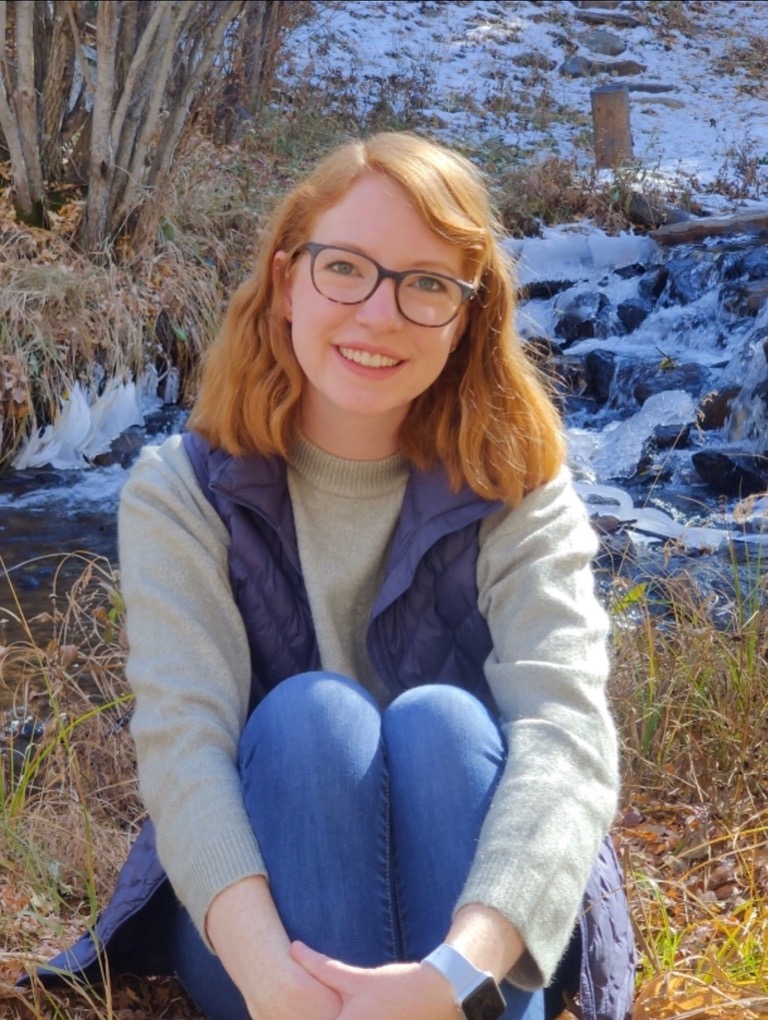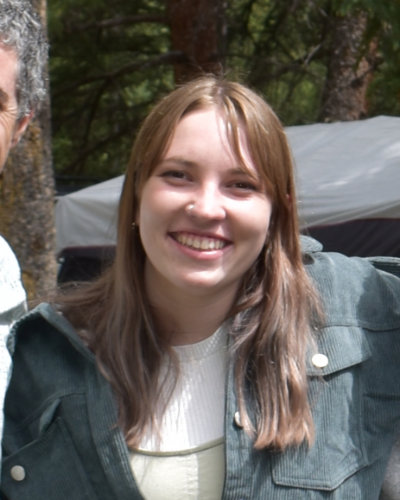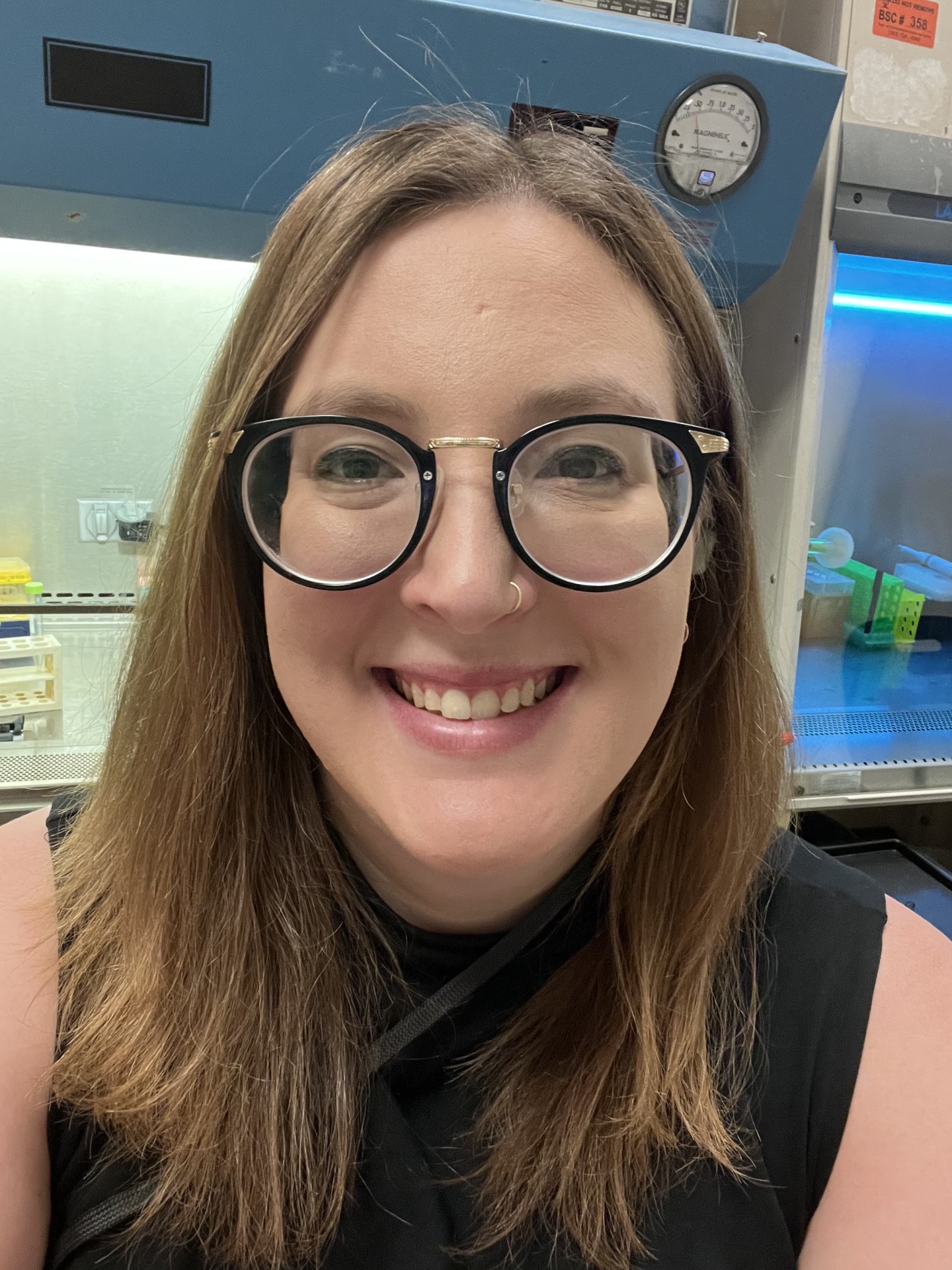BOLIE SCHOLARS
Bolie Family Endowment for the Molecular Biology Graduate Program
In 2012, the Bolie Family established the Victor W. and Earleen Bolie Graduate Scholarship fund, which is dedicated to pre-doctoral training in the Molecular Biology Graduate Program. This generous endowment enables our program to fund training activities
that enhance the scientific and professional development of our trainees. Each year we use the Bolie Graduate Scholarship funds to fund:
Bolie Travel Award. Each trainee in Molecular Biology Graduate Program receives one of these awards during their pre-doctoral training, which enables them to travel to national or international conferences and present their work.
Bolie Mini-Sabbatical. The Bolie Mini-Sabbatical enables pre-doctoral trainees to travel for 1-2 weeks to a laboratory outside University of Colorado to learn new techniques and experimental approaches that expand their training beyond the expertise of their thesis laboratory.
Bolie Scholar Award. Each year, three Bolie Scholar Awards are given to outstanding senior pre-doctoral trainees in recognition of their scientific and educational contributions.
Meet the Bolie Scholars for 2025-2026!

I graduated from the University of Colorado Boulder in 2018 with a degree in Molecular, Cellular, and Developmental Biology. As an undergraduate, I conducted research in the laboratory of Dr. Tin Tin Su, where I investigated the efficacy of a novel translation elongation inhibitor in models of colorectal carcinoma and acute myeloid leukemia. After graduation, I worked as a professional research assistant at the University of Colorado Anschutz Medical Campus in the laboratory of Dr. Craig Jordan, studying mechanisms of resistance to venetoclax and azacitidine in acute myeloid leukemia.
I matriculated into the University of Colorado Anschutz Medical Scientist Training Program (MSTP) in 2019 and joined the Molecular Biology Program in 2021. I currently conduct my doctoral research in the laboratories of Dr. Heide Ford and Dr. Kristin Artinger, where I study the intersecting roles of the homeobox transcription factor SIX1 in rhabdomyosarcoma and muscle development, using both cell line and zebrafish models. My work has shown that SIX1 co-binds genomic loci that regulate proliferation in both developmental and oncogenic contexts. Additionally, I have found that pharmacologic inhibition of EYA2, a transcriptional co-activator of SIX1, disrupts the expression of SIX1 and other transcription factors critical for rhabdomyosarcoma growth and proliferation.
As a senior Molecular Biology and MSTP student, I am deeply committed to mentoring graduate students and aspiring physician-scientists. I currently serve as co-president of the MSTP Student Council and as a student member of the Molecular Biology Program admissions committee. Outside the lab, I enjoy hiking, camping, cooking, and brewing beer.

I graduated from Western Washington University in 2019 with a degree in Cell and Molecular Biology. During this time, I worked in the lab of Dr. Nick Galati where I studied genetic interactions that perturb primary ciliogenesis. After graduating from Western Washington, I moved to Colorado to work in the lab of Dr. Chad Pearson as a lab technician.
I started in the Molecular Biology Program in the Fall of 2021, where I joined Dr. Chad Pearson’s lab as a graduate student. Here, I have been investigating why ciliogenesis defects arise in Trisomy 21. Specifically, I study how Trisomy 21 delays a process required for ciliogenesis called uncapping. My work is focused on cap specific E3 ubiquitin ligase trafficking defects in Trisomy 21.
In my free time I like playing music, hanging out with my dog and partner, and exploring local breweries.

I graduated with my undergraduate degree in 2017, and then after a 2-year gap with Americorps, obtained my master's degree in Cell and Molecular Biology at the University of Hawaii Manoa. During my masters, I worked in the lab of Dr. Ben Fogelgren investigating the role of the exocyst complex in amyloid beta trafficking in response to insulin.
I am currently a 5th year PhD candidate in the lab of Dr. Rytis Prekeris. For my thesis project, I study the role of a post-translational modification, glutamylation, in microtubule remodeling during mitotic cell division, specifically in telophase. My work has illustrated the complexities of microtubule remodeling in cell division when the central spindle microtubules become the intercellular bridge, and how the glutamylation state may contribute to that change through downstream effects on microtubule interacting proteins.
During my time at Anschutz, I previously served on the Curriculum Committee and the Admissions Committee for the Molecular Biology Program, as well as participated as a mentor to an undergraduate as part of the Developing Scholars program. In my free time, I like to spend time with friends, make weird sculptures with clay, and do some baking.
Former Bolie Scholars
Name | Research Interest | Bolie Scholar Award Year |
| Andrew Neumann | Focus on the regulation of polarity of the actin cytoskeleton during cell migration. | 2024 |
| Devi Rao | 2024 | |
| Kathryn Walters | Defining and targeting RBP-driven translational control and identification of de novo translation products underlying autoimmunity | 2024 |
| Alyssa Margolis | Understanding the role of arginine metabolism in Salmonella pathogenesis and resistance to oxidative stress. | 2023 |
| Luuli Tran | Understanding the gene regulatory networks that drive neural progenitors in the dorsal forebrain towards an oligodendrocyte fate. | 2023 |
| Chloe Barrington Ham | Synonymous codon usage: regulator of mRNA stability and translation initiation. | 2023 |
| Katie Hoff | The impact of TUBA1A Tubulinopathy mutations on the regulation of microtubule dynamics. | 2022 |
| Arely Diaz | RNA-binding protein function in fat metabolism using Drosophila melanogaster | 2022 |
| Juila Ceglowski | TTLL12 Regulates Tubulin and Ciliogenesis in Polarized Epithelia | 2022 |
| Rachel Jones | Structure and evolution of a distinct class of exoribonuclease-resistant RNA (xrRNA) structures found in Flaviviruses. | 2021 |
| Linnea Wethekam | Understanding how cells regulate the expression of the α- and β-tubulin and the consequences of expression imbalance. | 2021 |
| Claire Gillette | The role of RNA-binding proteins in regulating energy homeostasis | 2021 |
James Till | Mechanisms of Nitric Oxide-induced gentamicin tolerance in Salmonella | 2020 |
Cayla Jewett | Membrane trafficking pathways in cell polarization and lumen formation. | 2020 |
Kristin Dahl | mTOR regulation of oligodendrocyte cytoskeleton rearrangement during myelination | 2020 |
Emily Duncan | Rab GTPase-mediated ubiquitylation in cell migration and invasion. | 2019 |
Laura White | RNA repair and translational regulation | 2019 |
Katie Yergert | Molecular Mechanisms Underlying mRNA Localization to Myelin Sheaths | 2019 |
Patrick Cherry | RNA processing regulates the Unfolded Protein Response | 2018 |
Gabby Li | Intrinsic control of microtubule dynamics | 2018 |
Tessa Arends | The role of alternative splicing in B cells | 2017 |
Erik Linklater | Regulation of cancer cell migration and invasion by Rab40b. | 2017 |
Cassi Estrem | Dynein regulation by its microtubule track and its influence on microtubule dynamics to properly position the mitotic spindle in budding yeast. | 2017 |
Margaret Balas | Long noncoding RNAs in heterochromatin establishment and maintenance | 2016 |
Kelsey Hazegh | Determining the method and mechanism by which split ends and alan shepard contribute to fat regulation in Drosophila and whether it has a conserved role in mammalian cells. | 2016 |
Hannah Scarborough | Targeting lung cancers | 2015 |
Louis Cicchini | Innate Host Immune Recognition during Human Papillomavirus Infection | 2015 |
Ryan Sheridan | The Role of RNA Polymerase II Elongation Control in Transcription Dynamics | 2015 |
Julie Woodman | The role of phosphorylation in regulating the Scc2 cohesin deposition factor | 2014 |
Seth Welsh | The functions of Early B Cell Factor 1 (EBF1) in transcriptional repression and human leukemia | 2014 |
Alexandra Antonioli | Determining the roles of factor H-Related proteins in Complement Regulation | 2014 |
Becky Fusby | The role of human SPT6 in transcription regulation by RNA polymerase II | 2013 |
Juliette Peterson | Gene-environment interactions influence on the risk for neural tube defect | 2013 |
Michael Holliday | Allosteric Communication Networks and Enzymatic Regulation as Mediated by Conformational Dynamics in the Cyclophilin Family of Peptidyl-Prolyl Isomerases | 2013 |